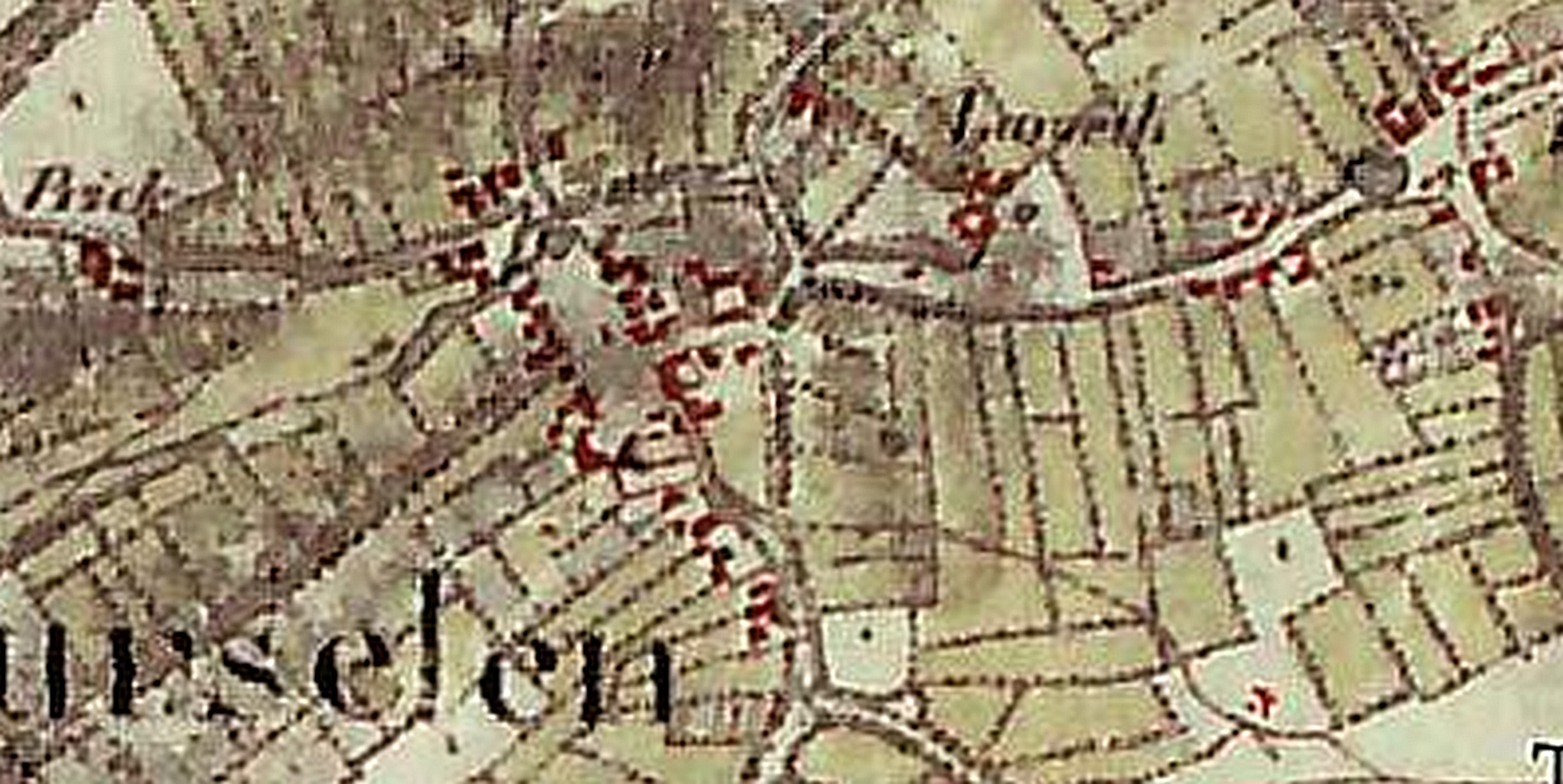Preface
Würselen is mentioned for the first time as Wormsalt in a document dated 17 October 870. At that time, it was a kind of country estate with a chapel, which supplied the Aachen Palatinate. The history up to the beginning of the 19th century is closely linked to the history of the Aachen Empire. But even around 1800, Würselen was a village that essentially derived its importance from the fact that the church of St. Sebastian had a central importance for the region.
There are no maps before 1800 depicting Würselen and the area around Würselen. At the end of the 18th century, Napoleon recognized the military importance of reliable, scaled maps. He commissioned his engineering officers under the direction of Colonel Jean Joseph Tranchot to produce maps for the area on the left bank of the Rhine occupied by him according to the state of the art of cartography at that time. After the Rhine Province was annexed to Prussia at the Congress of Vienna, Prussian officers under the direction of Major General Friedrich Karl Ferdinand Freiherr von Müffling continued to incorporate the areas on the left bank of the Rhine from 1817 onwards, but with much less detail. The maps around Aachen and Würselen were fortunately taken by Tranchot and show many details.
Local history
 "Only those who know the past have a future!" said Wilhelm von Humboldt. This is a somewhat too theatrical beginning of this section. But it is true that Würselen as a city, the relationship to the neighboring cities, also Aachen, the people here and the traditions are not understood, if you do not deal a little with the past. Therefore, this is about local history. A piece of history that can be derived from a look at Napoleon’s map around 1800.
"Only those who know the past have a future!" said Wilhelm von Humboldt. This is a somewhat too theatrical beginning of this section. But it is true that Würselen as a city, the relationship to the neighboring cities, also Aachen, the people here and the traditions are not understood, if you do not deal a little with the past. Therefore, this is about local history. A piece of history that can be derived from a look at Napoleon’s map around 1800.
It is about the districts of Würselen, in which the former neighboring villages can be found. It is also about the medieval Aachen Empire, whose border runs through Würselen, and about the quarters "Over Worm", which as administrative units of the Aachen Empire were always a little different and were treated differently by the Aachen Council.

